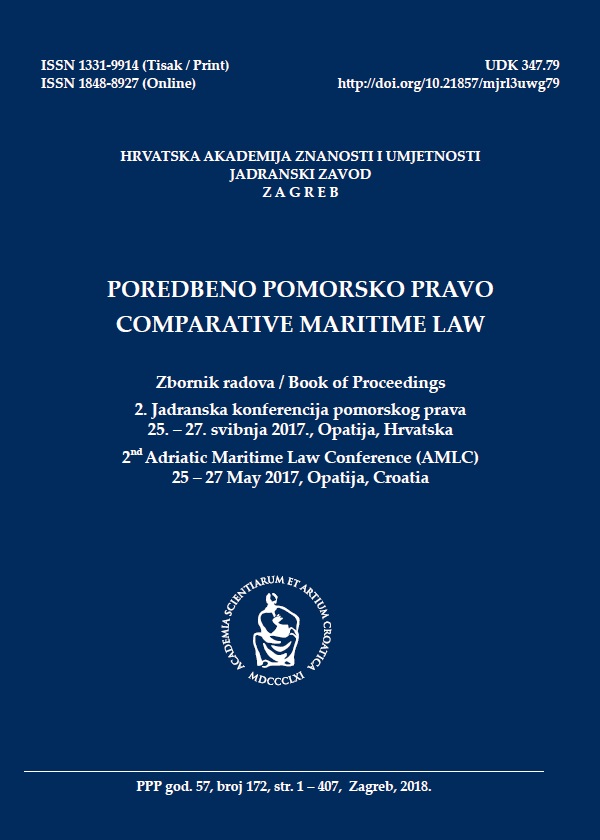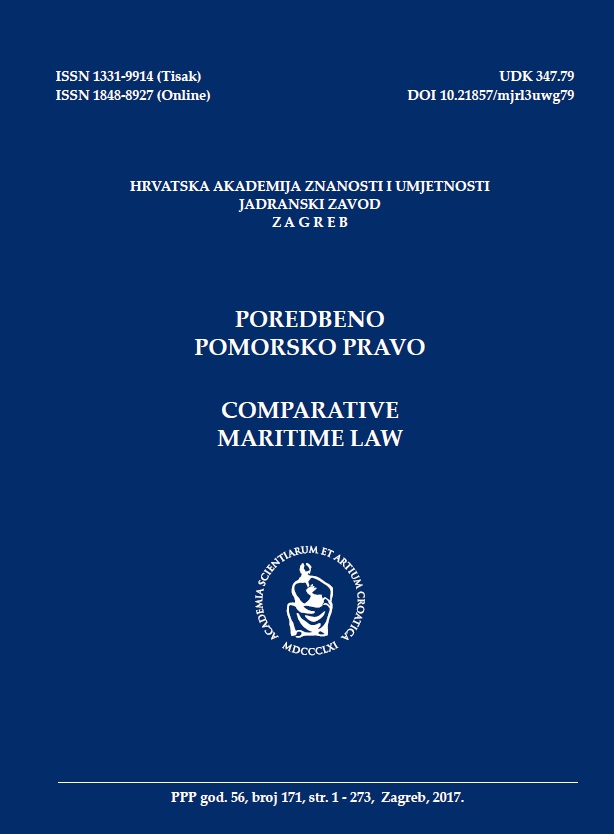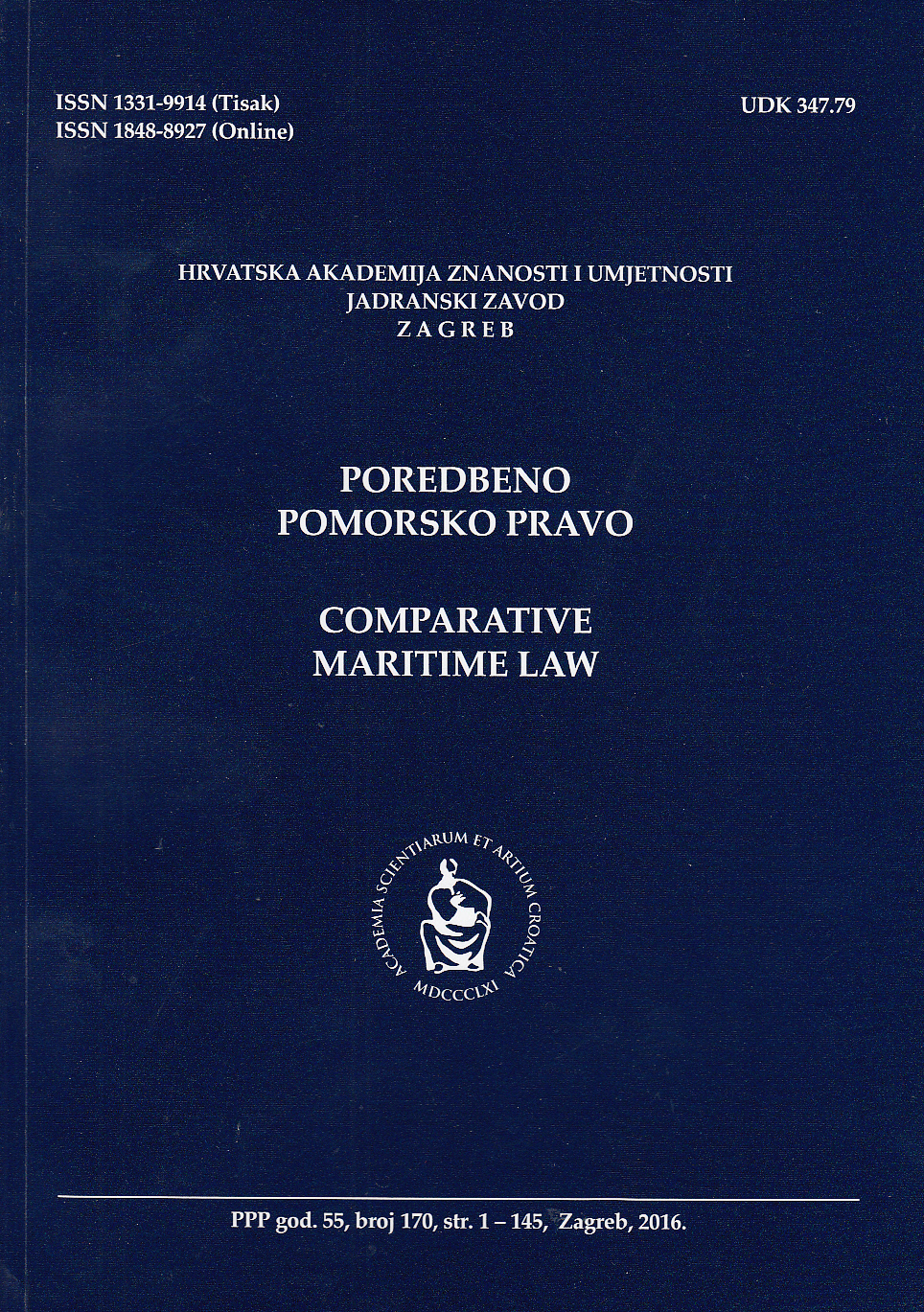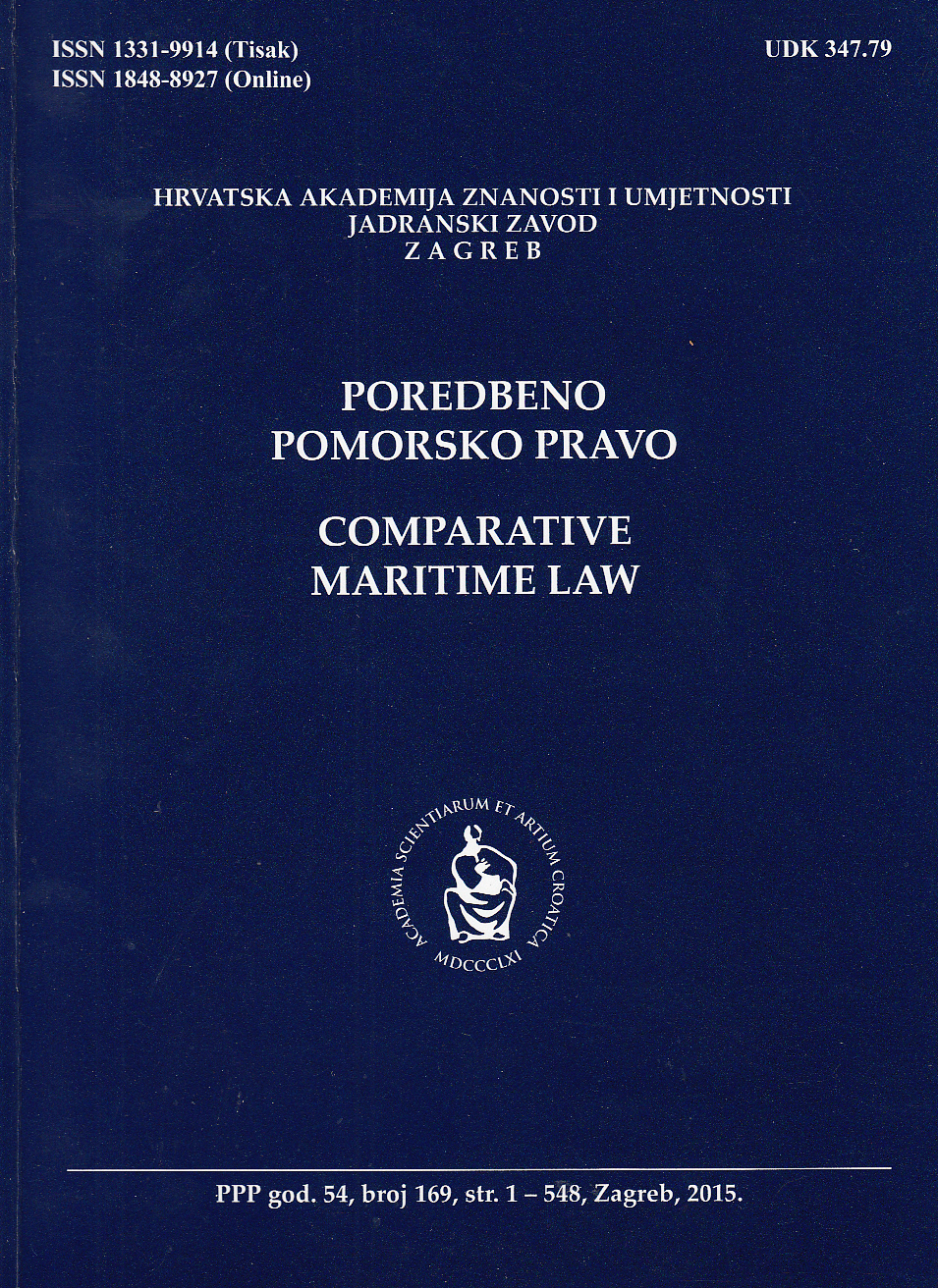Author(s): Vesna Skorupan Wolff,Adriana Vincenca Padovan / Language(s): Croatian
Issue: 171/2017
The legal concept of the recovery of wrecks and sunken objects has been regulated by a set of provisions of administrative law nature dealing with the relationship between the owner of the wreck or sunken object and the public authorities, and various legal aspects related to the recovery operations. The right to the recovery of the wreck or sunken object belongs primarily to the owner. The Code provides for a reasonable time limit, within which the owner is allowed to commence the administrative procedure for obtaining a permit for the recovery of the wreck or sunken object. This guarantees the inviolability of ownership, and establishes the principle that the fact alone that a ship or another moveable object is sunk or stranded does not directly influence the ownership. However, if the owner does not request a permit for the recovery or if s/he abandons the recovery operations without a justifiable reason, as well as if the owners are unknown, the Maritime Code provides for a legal framework for the recovery of wrecks and sunken objects by an honest finder or by the harbour master’s office. Within the legal framework for the recovery of wrecks and sunken objects, the law of finds has been introduced as a special legal concept applicable to wrecks and sunken objects abandoned in the sea. It regulates in detail all segments of the recovery procedure undertaken by an honest finder or the harbour master’s office. The Code further regulates all relevant issues related to dealing with the recovered objects, such as their custody or, in special cases, the possibility of their sale in a public tender. The Code regulates in detail the legal relationship between the owner and the honest finder, and between the owner and the harbour master’s office, depending on who undertook the recovery, in particular the obligation to pay the charges for the recovery, custody, find, and other claims to which the honest finder and the harbour master’s office are entitled pursuant to the Code. A special regime of property rights related to the recovered wrecks and sunken objects is provided under the Code. The Code prescribes different legal consequences in relation to the wrecks and sunken objects, depending on whether the owner does or does not respond and express the intention to take over the recovered object. If the owner responds and wishes to take over the recovered object, prior to delivery, he is obliged to settle all the claims related to the recovery that the honest finder or the State are entitled to pursuant to the Code, depending on who undertook the recovery. If the owner does not respond or refuses to settle all the reasonable costs, in case that the harbour master’s office undertook the recovery, the Code prescribes that the recovered wrecks or objects should become the property of the State. The honest finder may also acquire ownership over the recovered wrecks or other objects if s/he undertook the recovery, unless s/he expressly refuses to take over the ownership. A complete system of legal norms regulating the recovery of wrecks and sunken objects further includes the provisions on liability of the person undertaking recovery without the permit of the harbour master’s office or against the decision of the competent harbour master’s office. Additionally, the Code deals with legal issues related to the liability of the contractor performing the recovery works on the basis of a contract concluded with the owner, an honest finder, or the harbour master’s office, as well as their lien, and the right of retention over the recovered objects. The paper analyses, comments on and interprets the norms of the Maritime Code dealing with the recovery of wrecks and sunken objects. The authors comprehensively explain the theoretical and practical background for the amendments of the Maritime Code that entered into force in 2013, introducing a new legal regulation for the recovery of wrecks and sunken objects, as well as for the compulsory removal of wrecks. The authors expound on the relevance of the new legal norms and deliver guidelines for their implementation in practice. A further aim of the paper is to clarify the lawmaker’s intentions incorporated in the new legal regulation of the issues related to recovery of wrecks and sunken objects. The conclusion is that the new legal framework relating to the recovery and removal of wrecks and sunken objects, including the relevant administrative procedure, and the contract, tort and property law aspects of the matter, presents a comprehensive and systematic solution and major progress in the development of this segment of Croatian maritime law.
More...




